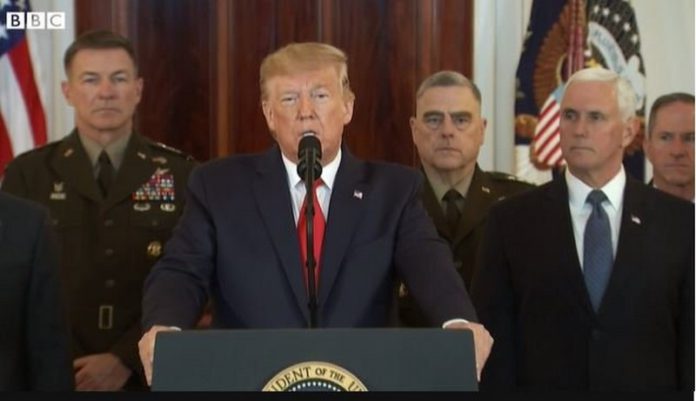The Trump administration has rescinded its policy that would bar international students who only take online courses from staying in the US, a federal judge announced Tuesday in Boston.
The decision comes a little over a week after Immigration and Customs Enforcement announced that students at schools offering only online courses due to the coronavirus pandemic would need to either leave the US or transfer schools.
One person familiar with the matter told CNN the White House has felt the blowback to the proposal and that some inside the West Wing believe it was poorly conceived and executed.
According to another source, the White House is now focused on having the rule apply only to new students, rather than students already in the US.
The White House declined to comment on an ongoing policy process.
According to US District Judge Allison Burroughs, the administration will return to the policy that was in effect in March, which provided more flexibility for students enrolled in schools that switched to all-online courses because of the pandemic.
For now, though, the move to drop the policy is a reprieve for more than 1 million international students in the US.
In the last week, students had expressed frustration and concern over their next steps, as universities and colleges announced decisions to move all courses online.
Among those universities was Harvard, which brought the lawsuit along with the Massachusetts Institute of Technology.
MIT President L. Rafael Reif celebrated the government’s decision in a statement Tuesday.
“This case also made abundantly clear that real lives are at stake in these matters, with the potential for real harm,” he said.
“We need to approach policymaking, especially now, with more humanity, more decency — not less.”
Several other colleges and states had similarly filed suit. Rice University President David Leebron, speaking on CNN as the announcement was made, said he’s “delighted” at the decision to reverse course
.”We thought the original rules that were suggested were cruel and misguided and didn’t serve our universities, didn’t serve our students and frankly didn’t serve our country,” Leebron said.
Students had already been bracing for the possibility of having to suddenly depart the US or transfer to a university offering a mix of online and in-person courses.
Shreeya Thussu, who’s studying molecular biology, told CNN last week that the sudden policy change had thrown her life into turmoil during an already stressful time; this summer she’s been working on applying to medical school.
Thussu, a senior at the University of California at Berkeley and president of the school’s International Students Association, called the news Tuesday a “relief.”
Thussu said she didn’t believe her eyes when she saw the news flash across Facebook Tuesday afternoon. Immediately, she started texting friends, trying to verify what had happened.
“I just hoped that it was real,” she said. “The last couple of days have just been so stressful.
The university’s been sending out emails, but giving no information, and it sounded really dire, and kind of told us to enroll in in-person classes if possible.
A lot of us were super anxious, so this is really good.”ICE did not immediately respond to a request for comment.
Visa requirements for students have always been strict and coming to the US to take online-only courses has been prohibited.
ICE maintained that prohibition in its July 6 guidance, while providing some flexibility for hybrid models, meaning a mix of online and in-person classes.
The agency suggested that students currently enrolled in the US consider other options, like transferring to schools with in-person instruction.
“If a school isn’t going to open or if they’re going to be 100% online, then we wouldn’t expect people to be here for that,” acting Homeland Security Deputy Secretary Ken Cuccinelli told CNN’s Brianna Keilar last week.


